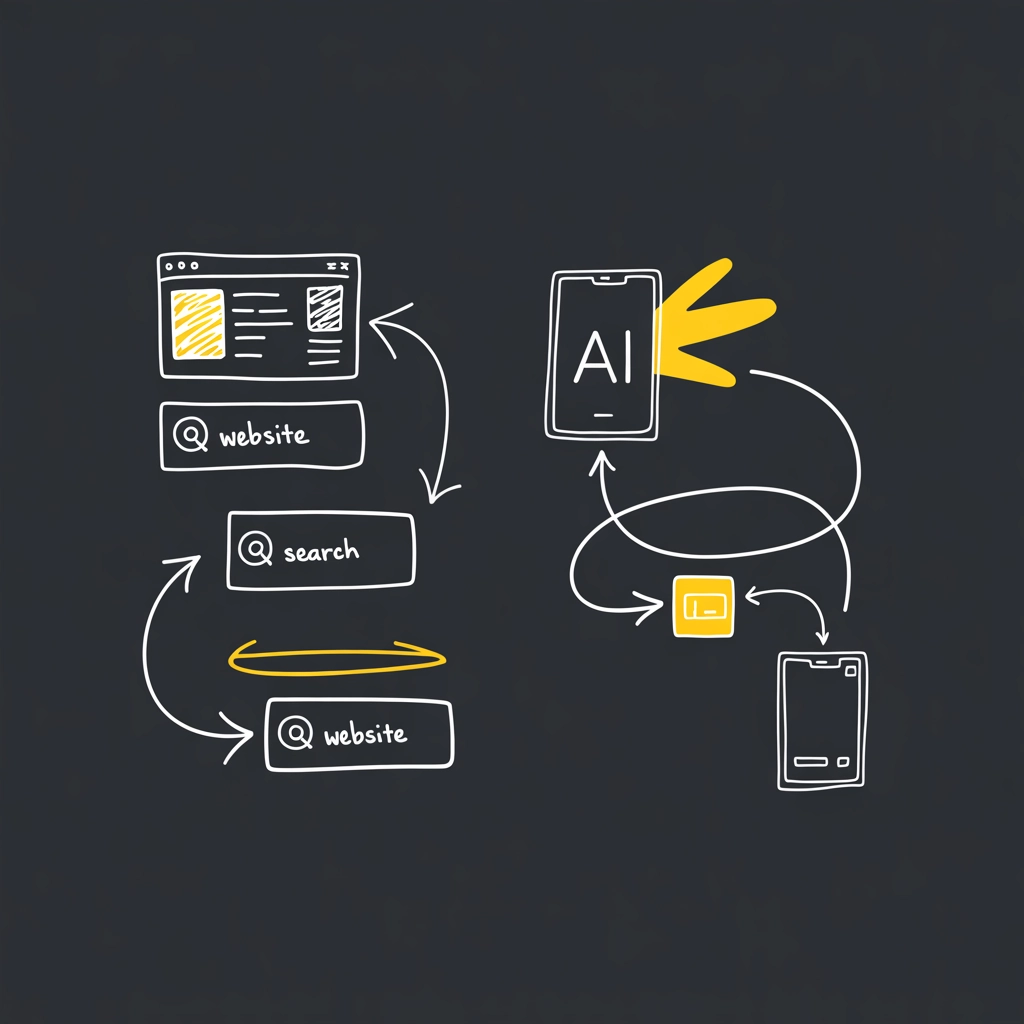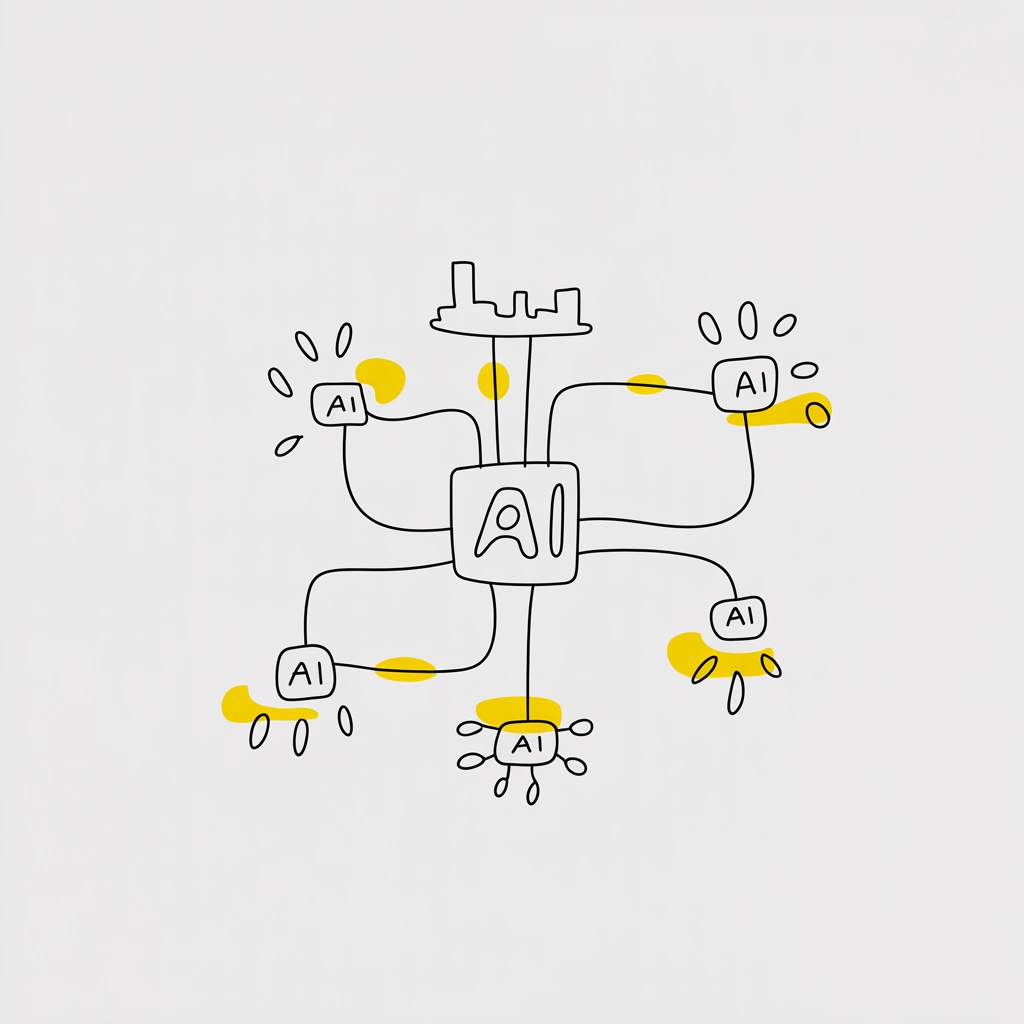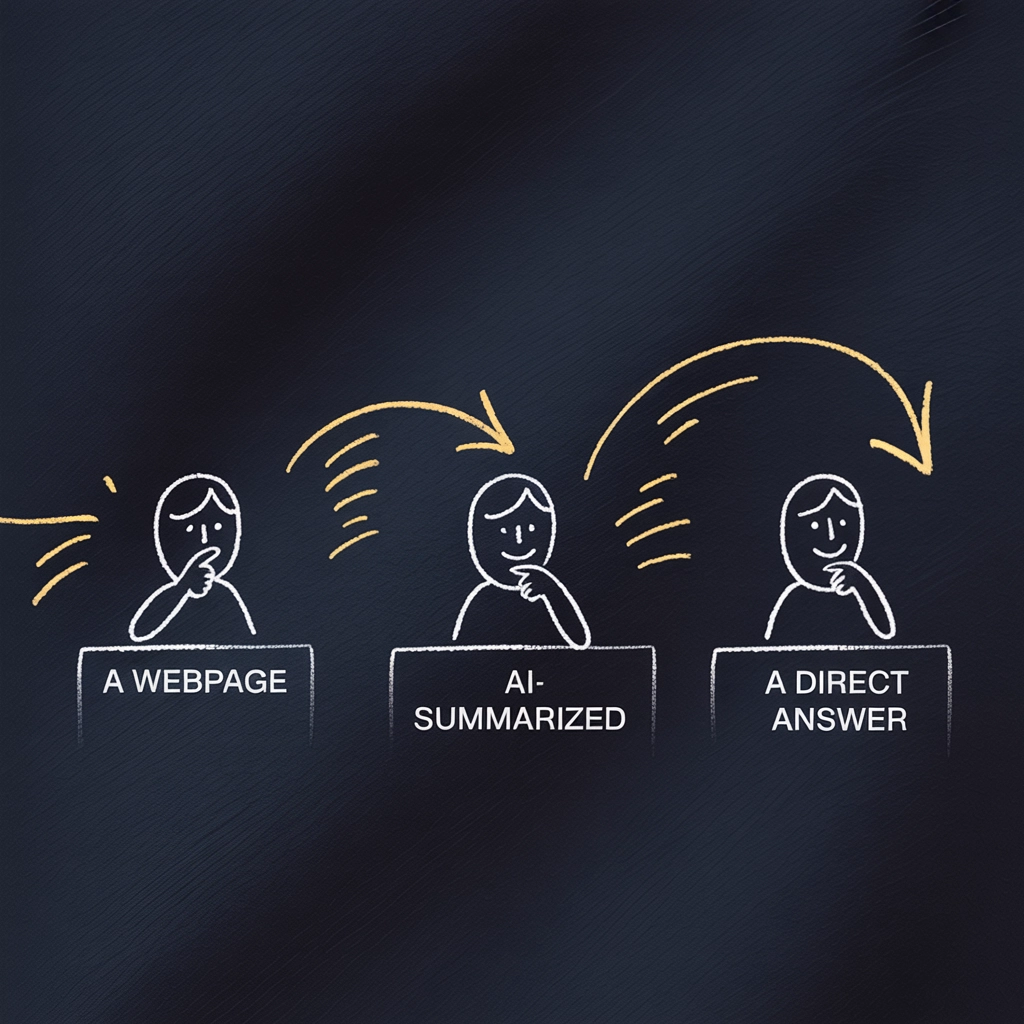The Search Revolution Nobody Saw Coming
Remember when SEO was all about cramming keywords into your content and building as many backlinks as possible? Those were simpler times. Fast forward to 2025, and the search game has fundamentally changed. While you were busy optimizing meta descriptions and obsessing over page load times (both still important, by the way), AI quietly revolutionized how people find information online.
Today, nearly 70% of searches never result in a website click. Why? Because AI-powered search engines are delivering answers directly in the results. Your potential customers are getting their questions answered without ever visiting your website. Let that sink in for a moment.
Welcome to the age of GEO – Generative Engine Optimization – where getting cited by AI matters more than ranking #1 on Google.
SEO vs. GEO: Not Just Different Letters
SEO and GEO might look similar on paper, but they're fundamentally different beasts:
| Aspect | Traditional SEO | Generative Engine Optimization (GEO) |
|---|---|---|
| Primary Goal | Drive website traffic | Get cited in AI-generated responses |
| Success Metrics | Rankings, clicks, traffic | Citation frequency, response accuracy |
| Content Focus | Keyword optimization | Entity clarity and factual precision |
| User Experience | Website visit required | Information consumed in AI interface |
| Technical Focus | Site speed, mobile-first | Structured data, knowledge graphs |

The shift is monumental: with SEO, users click through to your website. With GEO, the AI delivers your information directly to users. Your brand needs to be the source AI systems trust – even when your website isn't in the picture.
Why AI Has Changed Everything
In 2023, about 30% of searches involved AI. By early 2025, that number jumped to over 65%. The explosion of AI assistants like ChatGPT, Claude, and Google's AI Overview has fundamentally changed how people find information.
Consider these scenarios:
- A homeowner asks their smart speaker about fixing a leaky faucet – the AI pulls information from various sources and synthesizes an answer
- A business traveler asks their phone for restaurant recommendations – AI delivers personalized suggestions without showing a list of websites
- A student researches a topic – AI provides a comprehensive overview with citations
In each case, the user gets what they need without clicking through to a website. The brands that get cited become the authorities. The rest? They slowly fade into irrelevance.
The High Stakes of AI Representation
When someone searches your brand on Google in 2025, they don't just see your website – they see an AI-generated summary of your entire brand existence. This "entity profile" combines information from across the web to form a coherent story about who you are and what you offer.
The stakes couldn't be higher:
- Inaccurate information in AI responses can damage your brand reputation
- Missing context can position you incorrectly against competitors
- Lack of structured data can make you invisible to AI systems
- Poor entity definition can lead to your competitors being cited instead of you

From Traffic to Citations: The New Currency
For years, marketers obsessed over traffic. More visitors meant more potential customers, right? But in the AI-driven search landscape, traffic is becoming secondary to citations.
A citation occurs when an AI system references your brand or content as a source. These citations are the new currency of digital visibility, and they require a completely different optimization strategy.
Some hard truths about citations:
- They're zero-sum: When AI cites one source, it's NOT citing others
- They compound over time: The more you're cited, the more authoritative you become
- They're contextual: Being cited for the wrong things can hurt more than help
- They're quality-sensitive: One high-quality citation beats dozens of low-quality mentions
How to Win at GEO in 2025
Ready to optimize for AI-driven search? Here's your playbook:
1. Structure Your Data Like AI Thinks
AI doesn't browse – it parses. Make your content AI-friendly with:
- Schema markup: Implement structured data for all important content types (products, services, FAQs, etc.)
- Entity relationships: Clearly define how entities on your site relate to each other
- Factual precision: Present information in clear, factual statements that AI can easily extract
- Tabular data: When appropriate, present information in tables that AI can easily parse
2. E-E-A-T is Your New Best Friend
Google's E-E-A-T guidelines (Experience, Expertise, Authoritativeness, Trustworthiness) have never been more important. AI systems are trained to prioritize sources that demonstrate these qualities:
- Experience: Show firsthand knowledge through case studies and specific examples
- Expertise: Highlight credentials, achievements, and specialized knowledge
- Authoritativeness: Build a robust presence in your industry through thought leadership
- Trustworthiness: Maintain accuracy, cite sources, and be transparent about your information
3. Think Beyond Keywords to Entities
Keywords are still important, but entities (people, places, things, concepts) are the building blocks of AI understanding:
- Define your entity: What is your brand? What does it stand for? What are its attributes?
- Connect related entities: Show how your products, services, and expertise relate to each other
- Claim your knowledge graph: Ensure your Google Business Profile and other entity-defining platforms are complete and accurate
- Monitor entity representation: Regularly check how AI systems represent your brand
4. Create Content That Answers, Not Just Attracts
The best content for GEO doesn't just attract visitors – it definitively answers questions:
- Question-focused content: Create content that directly addresses common questions in your industry
- Definitive answers: Provide clear, concise answers that AI can extract
- Comprehensive coverage: Cover topics completely, leaving no information gaps
- Updated information: Keep content current – AI prioritizes fresh, accurate information

The Technical Side of GEO
While content strategy is crucial, technical optimization remains fundamental:
- Advanced schema implementation: Go beyond basics to implement schema for all relevant entities
- API readiness: Prepare your content to be accessible via API for future AI systems
- Natural language processing optimization: Structure content to be easily understood by NLP systems
- Entity verification: Use consistent identifiers across platforms to strengthen entity recognition
- Cross-platform consistency: Maintain consistent information across all digital touchpoints
GEO is Not Optional – It's Existential
Here's the reality of 2025: If you're not optimizing for AI-driven search, you're planning your own digital obsolescence. As AI continues to mediate more user interactions with information, brands that fail to adapt will find themselves increasingly invisible.
The good news? This shift is still in its early stages. Companies that move quickly have an opportunity to establish themselves as primary sources for AI systems, gaining a competitive advantage that will be difficult to overcome later.
How 141 Creative Can Help
At 141 Creative, we've been at the forefront of the SEO-to-GEO transition since its earliest days. Our digital marketing experts combine deep technical knowledge with creative content strategies to ensure your brand doesn't just survive the AI revolution – it thrives.
Our GEO services include:
- AI-ready content strategy development
- Structured data implementation and optimization
- Entity definition and knowledge graph management
- AI citation monitoring and optimization
- Cross-platform entity consistency audits
Ready to future-proof your brand for the AI-driven search landscape? Check out our digital marketing services or explore our latest AI insights for more information.
The shift from SEO to GEO isn't coming – it's here. The question is: will your brand be cited or forgotten?


0 Comments